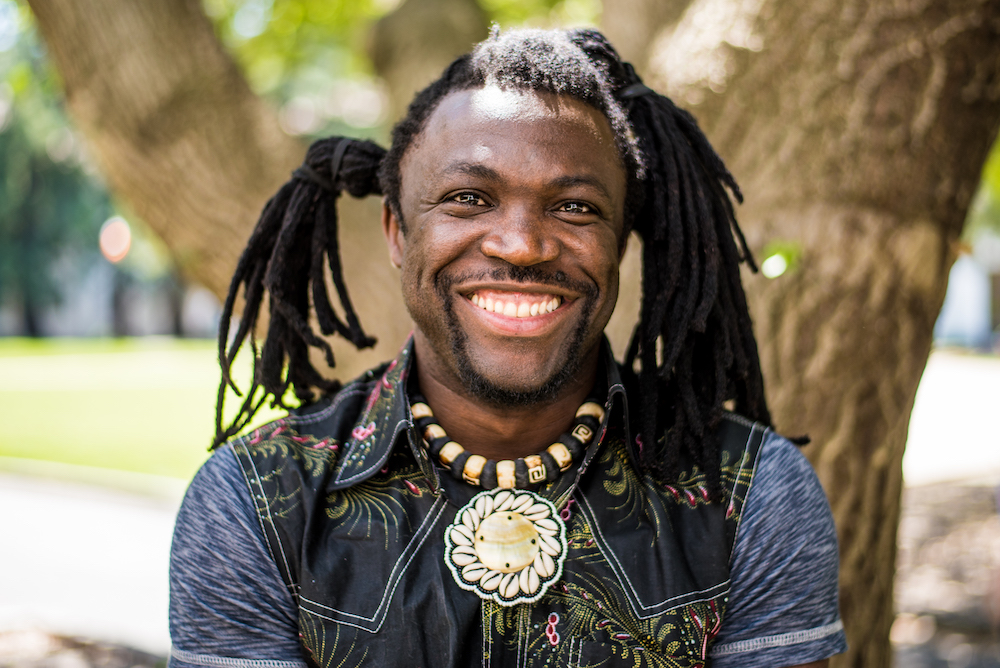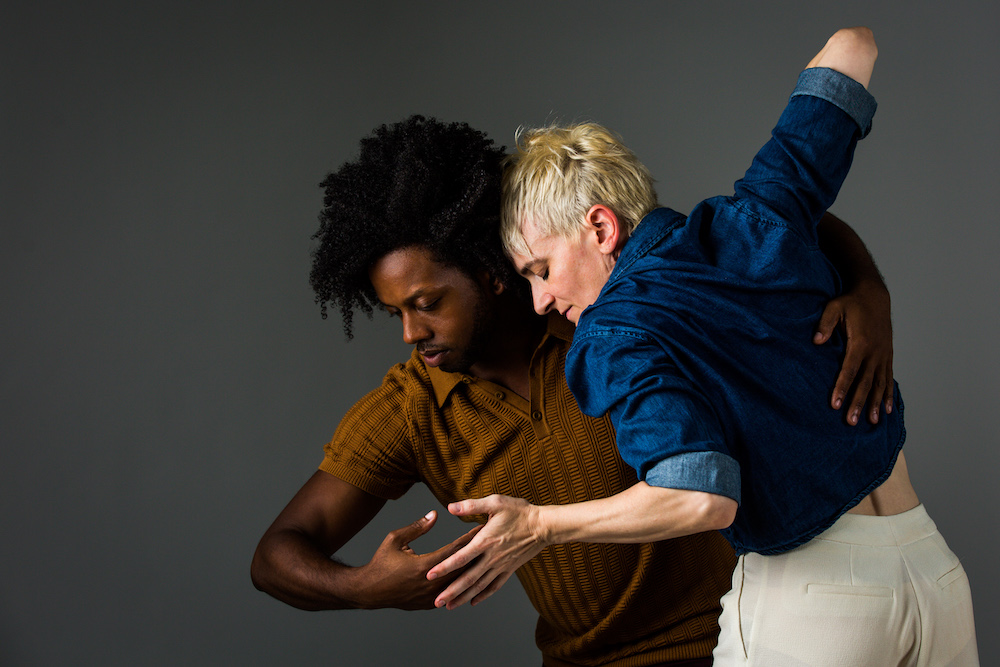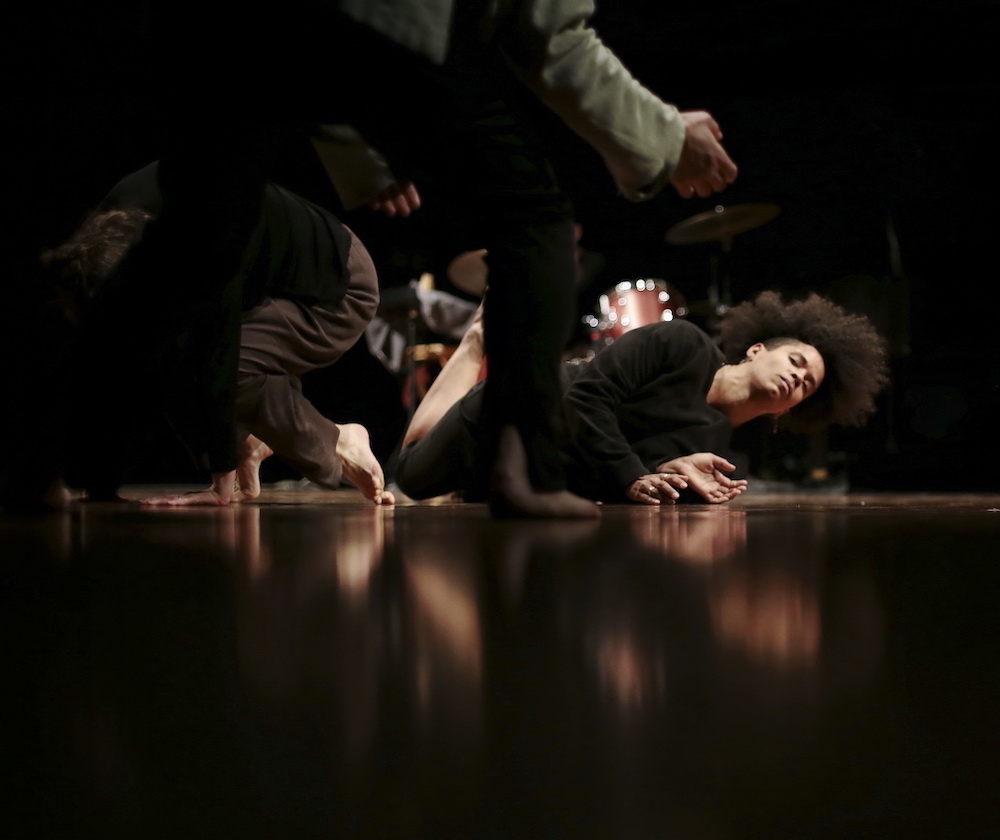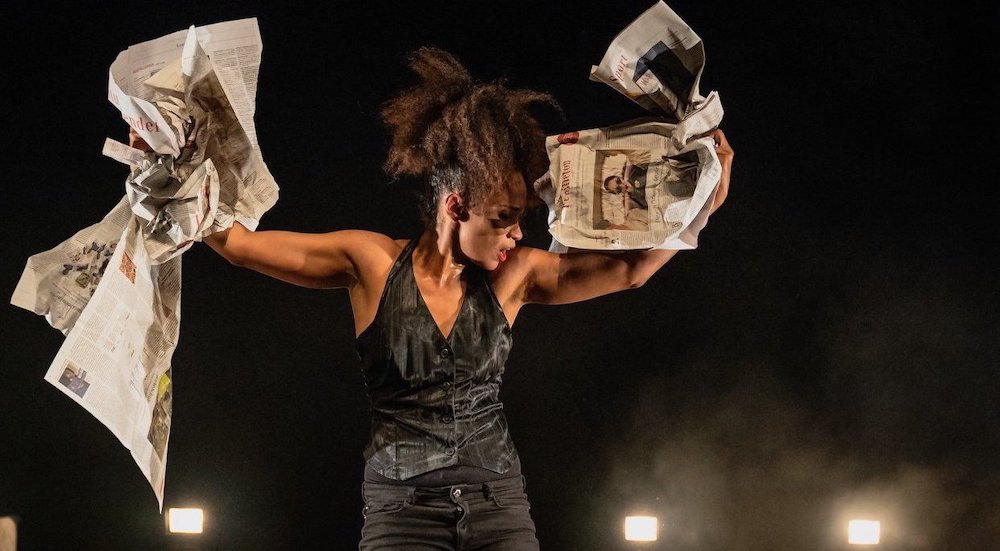“Imagining the Future,” a dance project co-led by Hope Mohr and Ranu Mukherjee, is based on an invitation to immigrant and refugee artists to use their practice to project images and/or ideas for what might lie ahead for them.
Originally scheduled for Sep. 13, and canceled because of severe air pollution, “Imagining” was to open Power Shift: Improvisation, Activism and Community, an ambitious multi-phased series of workshops, improvisation intensives, and performances on the role of improvisation in the arts as change agents in cultural, social and political practices. Now, “Imagining,” has been rescheduled for Sunday, October 4. The umbrella-like Power Shift project as a whole, running through Nov. 22, is part of the tenth anniversary of The Hope Mohr Dance (HMD)’s Bridge Project.
If, as expatriate poet Ezra Pound is supposed to have said, the artist is the antennae of the [human] race is true, it makes sense that dancers would be in the forefront of rethinking/imagining a future more equitable, more just and less racist. To that end co-directors and co-curators dancer/choreographers Hope Mohr, Karla, Quintera, and Cherie Hill have invited over a dozen national and international similarly-minded art activists to offer workshops, performances, and intensives on improvisation.
Power Shift intends to refocus improvisation from white artists who, the organizers believe, have dominated the practice for too long, to Latinx, Asian, African, and diaspora voices. Some of the programs specifically address dancers/movers but many also will serve the needs of artists, teachers, educators, and others committed to activism. (In the shadow of the pandemic, Mohr and company have joined other institutions in moving away from traditional, top-down structures toward a more equitable approach.)

Here are some highlights:
The Art & Activism Workshops portion of the programs, except for “Imagining,” are presented on Zoom. They offer theoretical and practical tools for anyone engaged in social justice work. No dance experience is needed.
On October 17, Noon-3 pm, in cooperation with Dance Mission Theater and Kambara+, Arts and Equity Consultant Beatrice Thomas offers a workshop on “Anti-Racism Training for the Dance Community.”
A panel discussion, moderated by HMD Director of Art in Community Hill, will include voices advocating change through and in art practices. “A Conversation About Aesthetic Equity” (October 18, 1 pm-2:30pm) will re-introduce, 2002 MacArthur Genius Award winner Liz Lerman and Paloma McGregor, formerly of Urban Bush Women and Liz Lerman/Exchange. Painter Jaime Cortez works as program officer, in charge of a diverse portfolio of performing arts grants, for the William and Flora Hewlett Foundation. Oakland’s Cultural Affairs Commissioner Michael Orange is the founder of Matatu, a think tank considering the “aesthetic enfranchisement” of marginalized populations.
Help us save local journalism!
Every tax-deductible donation helps us grow to cover the issues that mean the most to our community. Become a 48 Hills Hero and support the only daily progressive news source in the Bay Area.
In “The Keystone of the Arch: Embodied 100 Years of Vision” (Nov. 21-22, Noon- 5pm) Tammy Johnson (Bay Area) and Yalini Dream (Brooklyn) will guide participants through practices of exploring individual and group habits towards the building of communities.

For Improvisation Intensives, also on Zoom, some dance or movement experience is desirable.
With “Your Own God” Cuban-born and now Berlin resident Judith Sánchez Ruíz,, an internationally acclaimed dancer, offers individualized coaching to dancers in groups of three (October 5-9). Professional experience as a dance improviser and performer is a pre-requisite. Individuals who sign up for one of the three in-person workshops will receive an email with the details after registering.
In Sherwood Chen’s “Daily Improvisation Practice” (0ctober 19-23, 10am-Noon) participants explore departure points for movement exploration. Each session aims toward a single or a partnered improvisation.
In Space Carcasses, (October 31, noon-5 pm and Nov. 1, 2 pm-6pm,) dancer Onye Ozuzu, who works through the intersection of many different dance styles, examines the impact on the arts of COVID-19 and the national reckoning over racial injustice.
Improvisation Practices will take place outdoors in San Francisco, location TBA. Mask wearing and keeping social distance is required from all participants. These sessions offer a wide spectrum of approaches towards improvisation.
“Exploring Not Knowing; Art Making Through the Senses” (October 24, 11 am-1pm), people will work on concepts by dancer Rosemary Hannon and dancer/scholar Maurice Moore who aim for a shared practice that values “nothing productive” as resistance to capitalist values.
In “BYOI (Bring Your Own Intention) Experiments in Embodied Accountability” (October 24, 1:30 pm -3:30 pm) Daria Garina and Bhumi Patel work from the perspective of black, indigenous, queer trans people of color. Their session will explore practices of embodiment for accountability and transformative justice.
“Transformational ‘MAGIC’ Squares” (October 25, 1:30pm-3:30pm) sees Republic of Congo-born, Bay Area resident Byb Chanel Bibene will facilitate improvisation based on specific prompts.

Improvisation Performances are live streamed via YouTube or Zoom. All on pacific time.
“Real Talk 1: Vectors of Adverse Desire” (Oct.2, 8 pm)a solo by Guatemalan artist randy reyes explores the “inner landscape of eros and shame.”
In “Free Play” (October 9, 8pm) Jarrel Philips, a student and performer of capoeira, examines the beauty of the African diaspora to live accompaniment.
“Encaje” by Judith Sánchez Ruiz (October 10, noon) is a solo about hypocrisy and the contradictions of the self. The diaries of Anais Nin served as inspiration,
Purple is, a duet by Sánchez Ruíz and sam wentz (October 11, noon) is the fourth in a series of homages to choreographer Trisha Brown.
In conjunction with “Power Shift,” HMD will publish online a collection of writings that offer additional information on the art practices of improvisers and activists.
Power Shift runs For further information: www.bridgeproject.art/powershift


